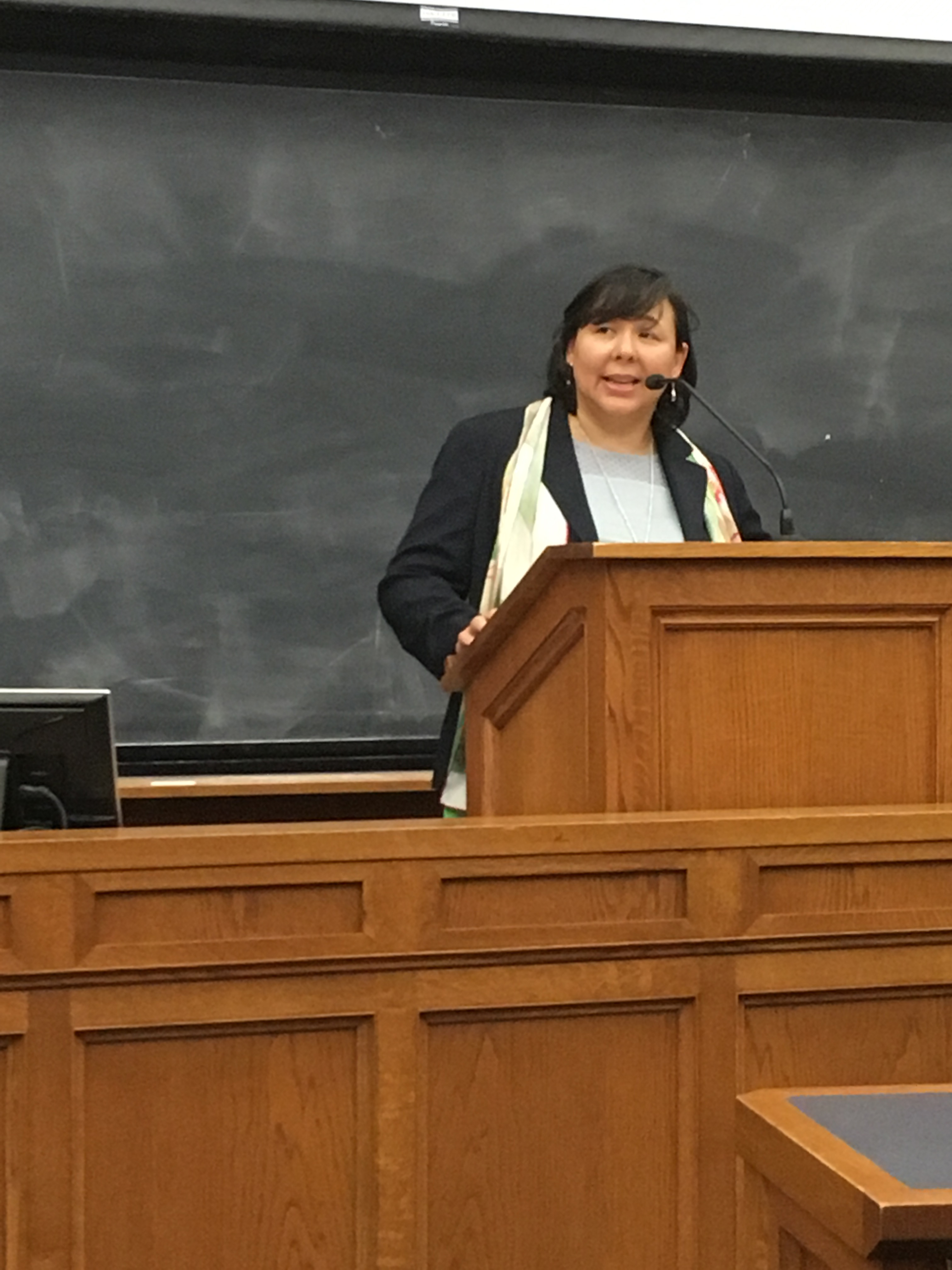
Margaret Huang, interim executive director of Amnesty International USA, spoke Thursday about Amnesty International’s key campaigns for the next four years: police accountability and gun violence, refugee rights and protection for human rights activists.
Huang, a long-standing advocate for human rights and racial justice who has led the U.S. branch of Amnesty since December, spoke at the Law School during a talk sponsored by The Politic magazine, the Global Health Justice Partnership, Amnesty International USA and the Oscar M. Ruebhausen Fund. She outlined to more than 30 attendees her organization’s plans to respond to key issues in human rights, both around the world and in the United States.
“We’ve done a lot of domestic work on the death penalty, solitary confinement and mass incarceration,” Huang said. “We want to work on human rights in our backyard as well as in other parts of the world.”
Huang explained the significance of these domestic endeavors, noting that during the protests that occurred in Ferguson in 2014, Amnesty was able to contribute to the movement even as an international human rights organization. Amnesty sent in human rights observers after learning of the police’s use of military tactics against protestors and the arrests of journalists covering the police response to protests.
Amnesty’s on-the-ground activism during the Ferguson protests spurred the organization to research law and policy surrounding police accountability and gun violence around the country. It published a report entitled “Deadly Force: Police Use of Lethal Force in the United States” last June.
Huang additionally talked about how the rhetoric on the domestic presidential campaign trail has become hateful against immigrant groups. She noted that there was a dramatic rise in the number of hate groups present in the U.S. — from 784 in 2014 to 892 in 2015.
“With all this grim news to look at, how do we as human rights activists stay optimistic?” she asked the audience before highlighting the growth of grass-roots groups across the world as a source of hope. Pointing to record numbers of people demanding democracy and accountability from their governments, Huang said Amnesty must now consider how to use its campaigns to work with these grass-roots movements and accomplish change.
Huang also discussed another Amnesty International campaign that will address the plight of refugees worldwide. Huang said this coming fall, Amnesty will launch a campaign specifically focusing on the rights of refugees around the world — a group that currently encompasses more than 14 million people.
Students who attended the talk noted that they enjoyed learning how Amnesty as an organization was specifically responding to current events, as it did to Ferguson.
“She focused much of her talk on immigration and refugees — specifically on refugees from Central America, who haven’t been getting as much attention. I appreciated that she brought that to the forefront,” said Anthony Kayruz ’17, who is editor of The Politic.
The third campaign Amnesty will embark on involves working to protect human rights defenders, such as activists and journalists, to ensure that they are able to continue the work they are doing, Huang said.
“What seems so interesting to me about these campaigns are their attempts to not only advocate for human rights but also to steer these issues in a positive direction,” Zack Austin ’17 said.
Peter Benenson founded Amnesty International in 1961.







